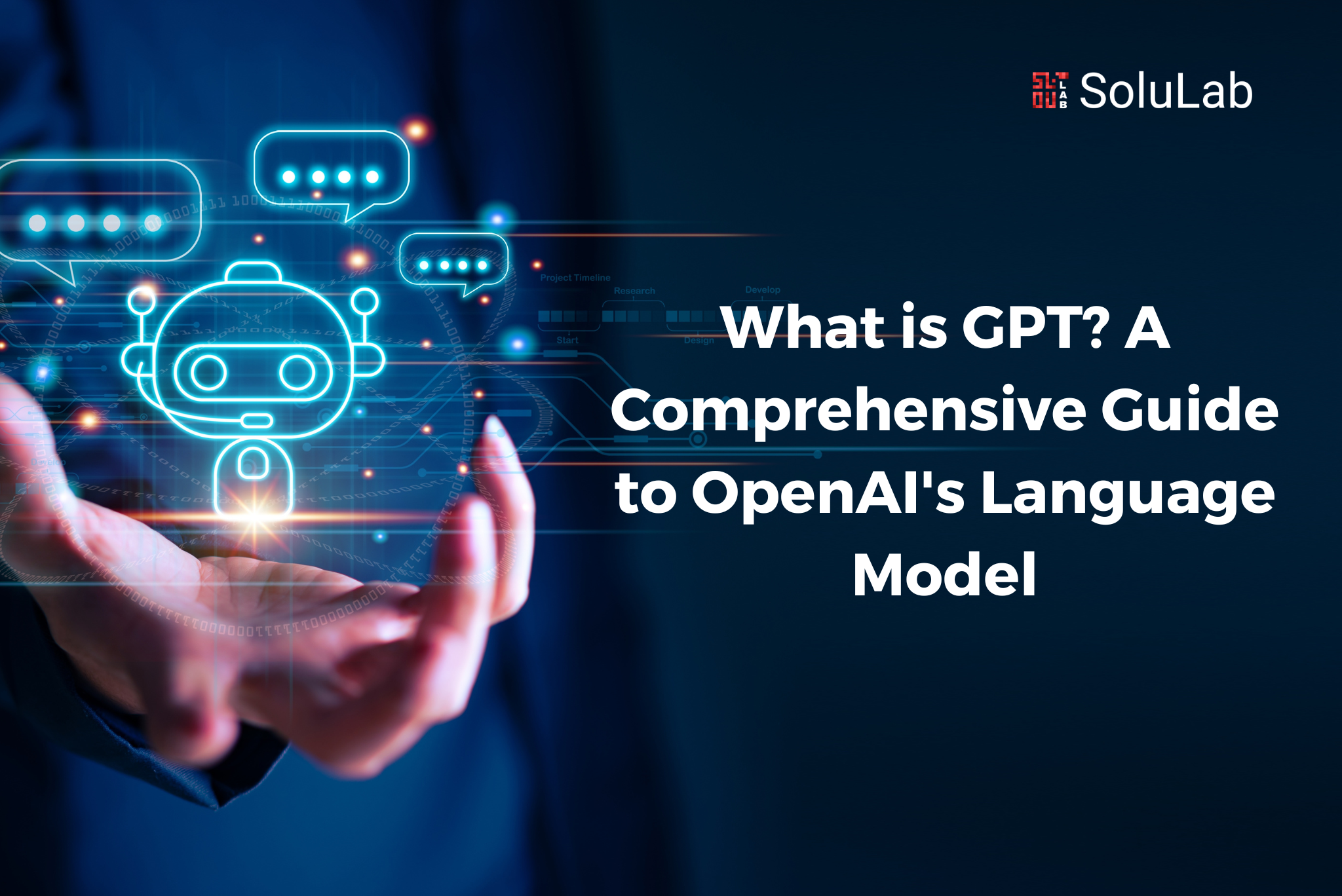What is GPT? A Comprehensive Guide to OpenAI’s Language Model

The world of artificial intelligence (AI) has seen rapid advancements in recent years, and one of the most remarkable innovations is OpenAI's Generative Pre-trained Transformer (GPT). This revolutionary language model has transformed the way machines understand and generate human language. In this article, we will provide a comprehensive guide to GPT, explain how it works, and highlight the role of Generative AI Development Services and Generative AI Development Companies in leveraging this technology.
Understanding GPT: What is Generative Pre-trained Transformer (GPT)?
At its core, Generative Pre-trained Transformer (GPT) is a machine learning model that excels at natural language processing tasks. It is based on the Transformer architecture, which enables the model to process large amounts of data and generate coherent, context-aware text. GPT has been pre-trained on vast datasets, learning to predict the next word in a sentence, which makes it capable of producing human-like responses to various prompts.
How Does GPT Work?
The Generative Pre-trained Transformer (GPT) model uses a Transformer-based architecture, which is designed to handle sequential data efficiently. It leverages attention mechanisms that allow the model to focus on different parts of input data depending on the context. This mechanism enables GPT to generate highly relevant and coherent responses.
The model operates in two phases:
- Pre-training: During this phase, the GPT model is trained on massive datasets from the internet, including websites, books, and other publicly available text. The goal is to teach the model to predict the next word or token in a sentence, thus developing an understanding of grammar, context, and even facts about the world.
- Fine-tuning: Once pre-training is complete, GPT can be fine-tuned for specific tasks using domain-specific data. For instance, it can be adapted for tasks like answering questions, writing code, summarizing text, or even generating creative content such as poetry or stories.
Applications of GPT in Various Industries
GPT’s potential applications are vast. Here are a few examples of how Generative AI Development Services are utilizing GPT:
- Healthcare: GPT models can assist healthcare professionals by summarizing medical research, generating patient reports, and even providing preliminary diagnoses based on patient data.
- Customer Service: GPT-based chatbots are increasingly being used by companies to provide automated, 24/7 customer support. These AI-driven chatbots can understand customer queries and respond with accurate and contextually relevant information.
- Content Creation: From drafting blog posts to writing marketing copy, GPT is a powerful tool for content creators. It can generate text on a variety of topics with minimal human intervention.
- Education: GPT can be used to develop personalized tutoring systems that adapt to a student's learning style, helping them grasp complex concepts by providing explanations and answering questions.
Role of Generative AI Development Companies
The demand for AI-powered solutions has led to the rise of Generative AI Development Companies that specialize in building and deploying GPT-based models. These companies provide a range of services, including model training, fine-tuning, and integration into business applications.
Generative AI Development Services offer the technical expertise to help businesses harness the full potential of GPT models. These services typically include:
- Custom Model Development: Companies tailor GPT models for specific industries or applications, ensuring that the AI system meets the unique needs of the client.
- Deployment: Once the model is fine-tuned, these companies assist with deploying the AI system into production environments, ensuring seamless integration with existing tools and workflows.
- Maintenance and Updates: AI models need regular updates to stay relevant and accurate. Generative AI companies provide ongoing support and maintenance, helping businesses adapt to changes in technology and data requirements.
Advantages of Using GPT for Businesses
Implementing GPT-based systems can bring significant advantages to businesses across various industries. Here are some of the key benefits:
- Efficiency: GPT can automate repetitive tasks such as content creation, report generation, and data analysis, freeing up valuable human resources for more complex tasks.
- Scalability: GPT-based applications can handle large volumes of data and requests, making them ideal for customer service, marketing, and research applications.
- Cost Reduction: Automating processes with GPT can reduce the need for human intervention, leading to lower operational costs while maintaining high accuracy and performance.
Future of Generative Pre-trained Transformer (GPT)
As the field of AI continues to evolve, Generative Pre-trained Transformer (GPT) models will become even more advanced and capable. We are already seeing the development of more specialized versions of GPT, such as those tailored for specific industries or tasks. In the near future, GPT could potentially revolutionize fields like legal research, journalism, and even scientific discovery.
Moreover, the continued growth of Generative AI Development Companies will play a crucial role in ensuring that GPT technology is accessible and usable across all industries. These companies will continue to innovate, providing businesses with the tools they need to stay ahead in an increasingly AI-driven world.
Conclusion
OpenAI's Generative Pre-trained Transformer (GPT) has emerged as a groundbreaking tool in the world of AI, capable of performing tasks that require human-like understanding of language. The adoption of GPT across industries highlights its potential to streamline processes, enhance customer interactions, and generate valuable insights. As Generative AI Development Services and Generative AI Development Companies continue to refine and expand the capabilities of GPT, businesses that embrace this technology will be well-positioned for success in the AI era.
- Art
- Causes
- Crafts
- Dance
- Drinks
- Film
- Fitness
- Food
- Jocuri
- Gardening
- Health
- Home
- Literature
- Music
- Networking
- Alte
- Party
- Religion
- Shopping
- Sports
- Theater
- Wellness


